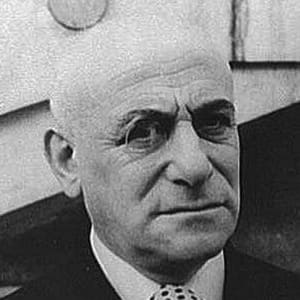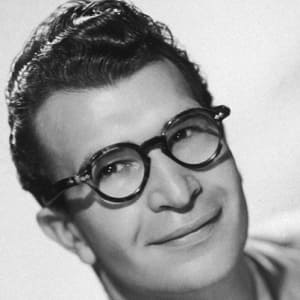
Max Jacob
French writer Max Jacob was among the leaders of the avant-garde art movement in Paris during the early 20th century.
Who Was Max Jacob?
Born to Jewish parents on July 12, 1876, in Quimper, France, Max Jacob became a leader of the avant-garde art scene after moving to Paris. Jacob was known for his playful wordplay, and his skill with prose poetry was illustrated in the collection Le Cornet à dés. Although he converted to Catholicism in 1915, Jacob was arrested by the Gestapo in early 1944 and died two weeks later in a prison camp.
Early Life
Writer Max Jacob was born on July 12, 1876, in Quimper, France. The son of Jewish tailors and antique dealers, he felt the sting of anti-Semitism as a child. After studying at College La Tour-d'Auvergne, he stole money from his mom to move to Paris in 1897.
Artistic Development
Jacob took a series of odd jobs after arriving in Paris, serving as an art critic, piano teacher and shopkeeper, among other professions. He also fell in with the avant-garde writers and artists who roamed the city at the turn of the century, becoming a close friend and roommate of Pablo Picasso.
Immersed in art during an era when symbolism, cubism, surrealism and other modernist forms were converging, Jacob borrowed from many of these styles without definitively belonging to any one category. He was, however, recognized as one of the leading practitioners of prose poetry, as demonstrated in his celebrated collection, Le Cornet à dés. Other noted poetic collections include Le Laboratoire Central and Poèmes de Morvan le Gaëlique, and in the prose-poetry hybrid La Défense de Tartufe, and other novels, plays and letters, he displayed a playful penchant for wordplay.
Jacob also cultivated a talent for visual art. Although he was far more renowned for his ability with words, he secured exhibitions in Paris and New York City for his drawings and paintings.
Spirituality
Jacob claimed to have had a vision of Christ in one of his paintings in 1909. He converted to Catholicism in 1915, with Picasso taking on the role of his godfather, although his conversion did little to stem his homosexual urges, as he had hoped.
Tired of the temptations of the bohemian lifestyle, Jacob moved to the Benedictine monastery at Saint Benoît-sur-Loire in 1921. He continued to travel and returned to Paris for extended stints, but spent the bulk of his time painting and writing at the monastery over the following two decades.
Death and Legacy
On February 24, 1944, Max Jacob was arrested by the Gestapo at Saint Benoît-sur-Loire. Weakened by advancing age and four days amid squalid conditions in Orleans prison, he died of pneumonia at Drancy transit camp on March 5, 1944.
Although Jacob is not remembered in the same regard as his former compatriot, Picasso, or other French poets such as Charles Baudelaire or Arthur Rimbaud, he is nonetheless recognized as an important contributor to the early 20th century Parisian scene that sought to tear down existing ideals and redefine artistic concepts for successive generations.




